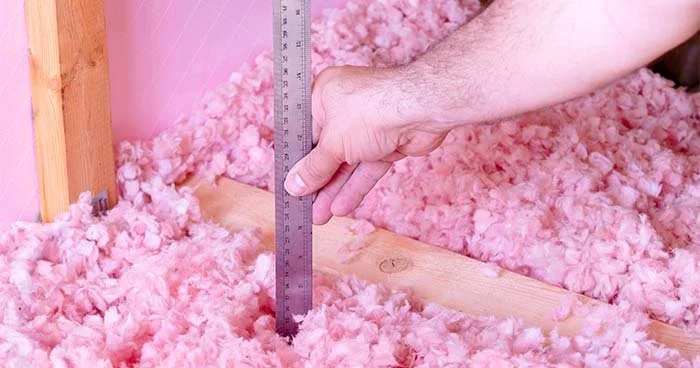Comfort Over Everything.
Attic insulation is a crucial component for maintaining energy efficiency in a home. It helps regulate indoor temperature by preventing heat loss in winter and heat gain in summer. Proper insulation can reduce energy bills, enhance comfort, and improve overall home efficiency..
Cellulose
Cellulose insulation is made from recycled paper fibers treated for fire and pest resistance, offering excellent thermal performance and soundproofing. It's typically blown into walls and attics, filling gaps effectively and providing a high R-value.
Fiberglass Batt
Fiberglass batt insulation consists of pre-cut panels made of fine glass fibers, commonly used in walls, floors, and ceilings. It's easy to install and provides reliable thermal protection, but may leave gaps if not fitted properly.
Blown-In Fiberglass
Blown-in fiberglass insulation is composed of loose glass fibers that are blown into attics and walls, filling cavities and covering irregular spaces. This method ensures even coverage and good thermal resistance, making it ideal for retrofitting and adding additional insulation.
FAQs
What is insulation and why is it important?
Insulation helps control the temperature inside your home, making it more energy-efficient by reducing the amount of heat that escapes in the winter and enters in the summer. It can help lower heating and cooling costs and improve comfort.
What is the R-value, and why does it matter?
The R-value measures an insulation material's resistance to heat flow. The higher the R-value, the better the material insulates. Different regions have recommended R-values based on local climate conditions.
What types of insulation are available?
There are several types of insulation, including fiberglass, cellulose, foam board, spray foam, and reflective (radiant barrier) insulation. Each type has its own applications and benefits depending on the area of your home where it is installed.
Can insulation help with soundproofing?
Yes, insulation can significantly reduce noise transfer between rooms and from outside sources. Dense materials like spray foam are particularly effective for soundproofing purposes.
How do I know if my home is properly insulated?
Common signs of insufficient insulation include uneven temperatures between rooms, high heating and cooling bills, cold walls and floors in winter, and overly hot indoor temperatures in summer. A professional energy audit can also provide a detailed assessment.
How long does insulation last?
Most types of insulation can last over 100 years, but its effectiveness can diminish over time if it becomes damaged by moisture, pest infestations, or improper installation. Regular inspections can help ensure it remains in good condition.







